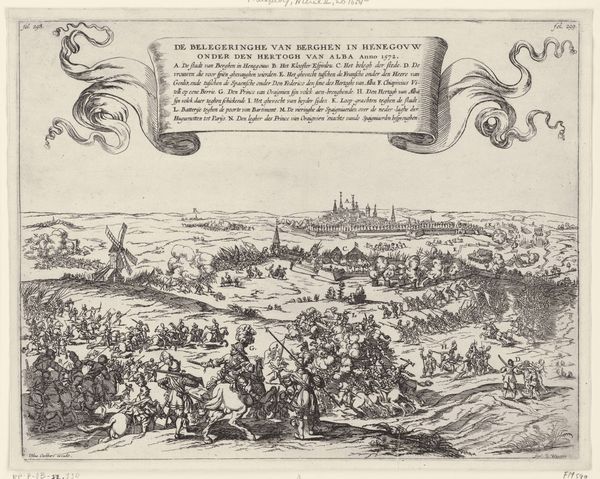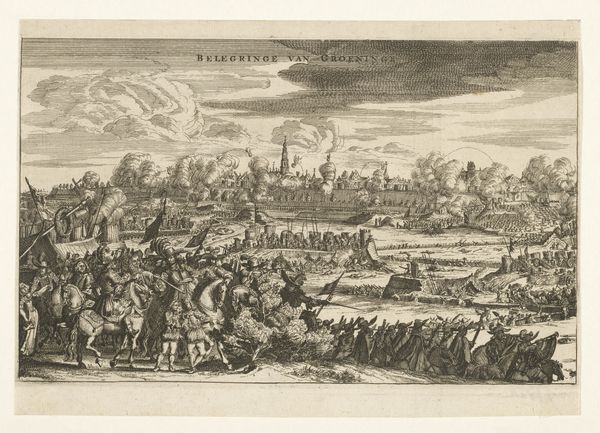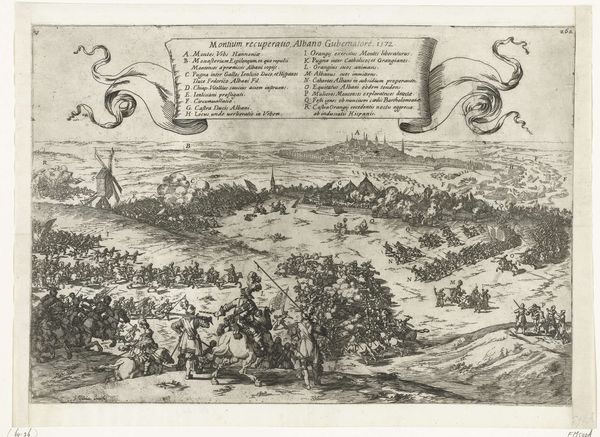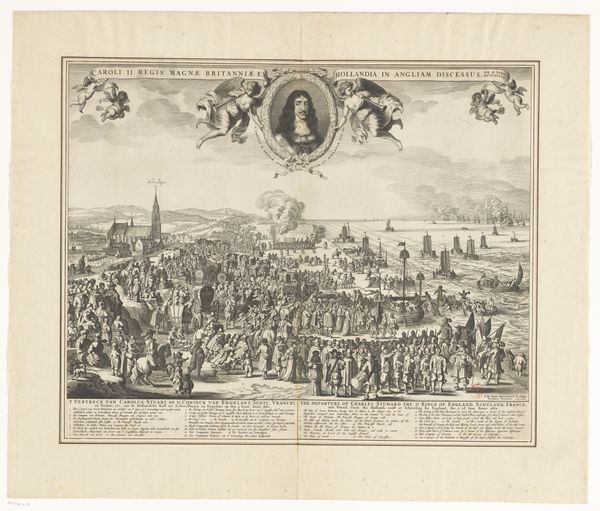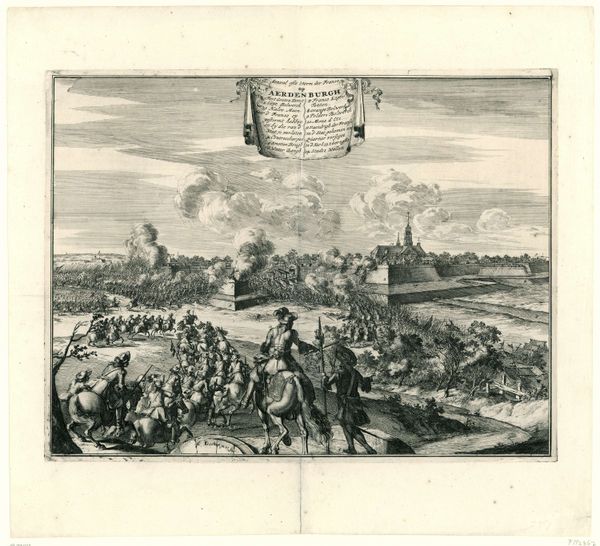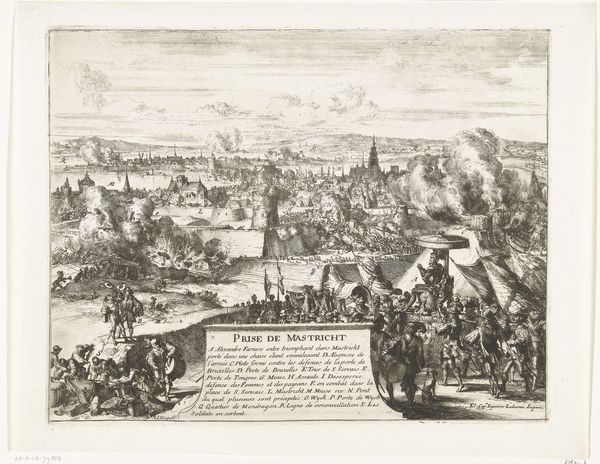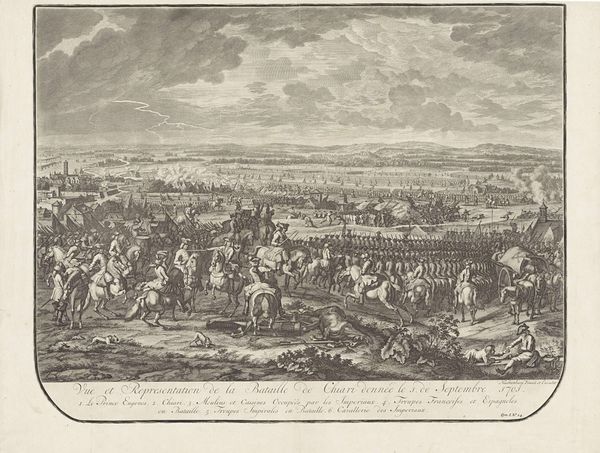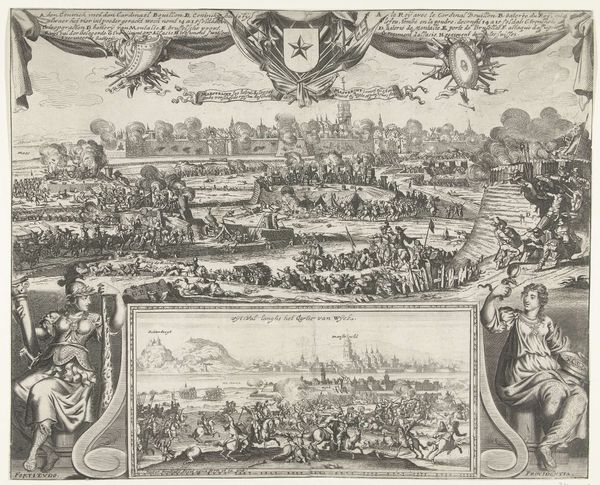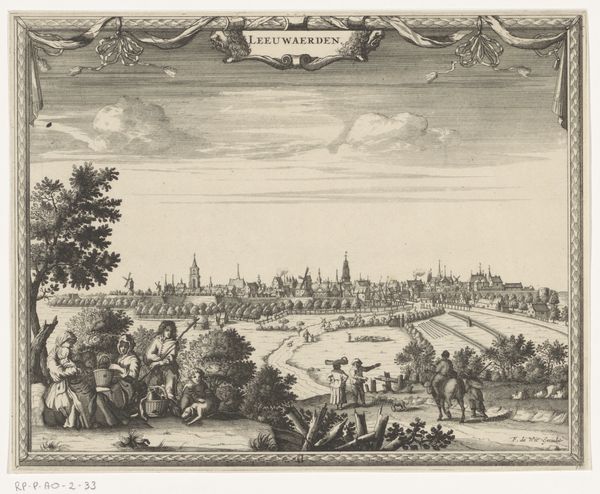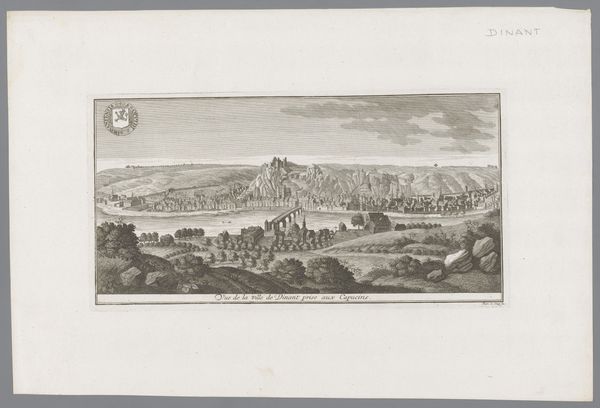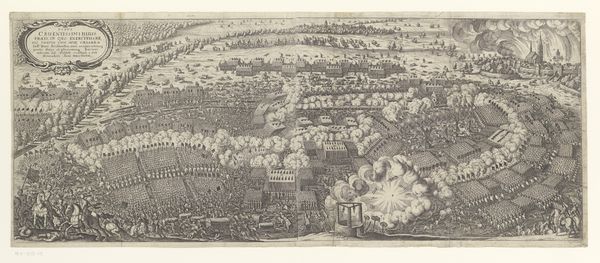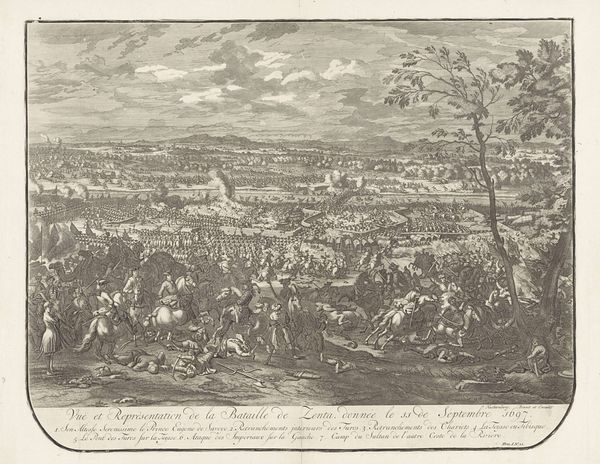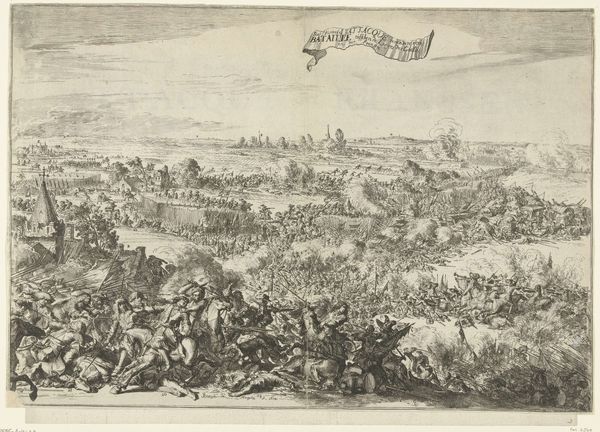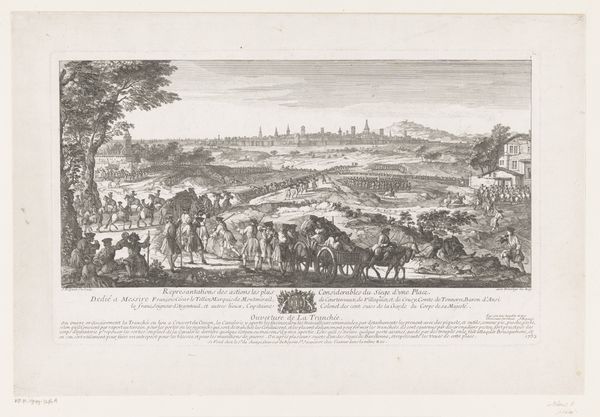
drawing, print, ink, pen, engraving
#
drawing
#
aged paper
#
light pencil work
#
baroque
# print
#
pen sketch
#
sketch book
#
landscape
#
personal sketchbook
#
ink
#
ink drawing experimentation
#
pen-ink sketch
#
sketchbook drawing
#
pen
#
cityscape
#
history-painting
#
storyboard and sketchbook work
#
sketchbook art
#
engraving
Dimensions: height 289 mm, width 373 mm
Copyright: Rijks Museum: Open Domain
Editor: Here we have "Belegering en verovering van Naarden, 1673," made between 1684 and 1689 by Jacobus Harrewijn, a drawing and engraving displayed at the Rijksmuseum. The image is packed with action. What strikes me most is how a single image attempts to capture the immense chaos and energy of warfare. How do you interpret this work in relation to the historical moment it depicts? Curator: That's a great observation. It's vital to see this not just as a historical record, but as a construction of power. Consider the 'heroic' depiction of warfare. Who benefits from portraying conflict this way? This print aestheticizes violence. Does it celebrate Dutch power? Or offer a warning? Editor: That's a perspective I hadn't considered. I was so focused on the factual depiction of the siege. Curator: Exactly. And who has the privilege of such a detached view? Who's perspective are we centered in when viewing it from this elevated distance? What does it mean to witness such destruction and chaos from a 'safe' distance? What does it mean that there is a legend above the illustration indicating the commanding officers and leadership, but none to call out the fallen? How does this skew the representation? Editor: So, you're suggesting that beyond the visual representation, we need to analyze the power dynamics at play and what is being shown, but also omitted? Curator: Precisely. Art is rarely neutral. Especially historical depictions like these. The act of capturing and disseminating images shapes public understanding. What historical and social norms are enforced by depicting war in this particular manner? Editor: I see. Considering that shifts the whole dynamic of understanding the image. Thanks, this really illuminates some fresh perspectives! Curator: It's about engaging in critical analysis and pushing our understanding beyond face value, interrogating the embedded social structures in visual culture. We learn when we continue to ask "why?".
Comments
No comments
Be the first to comment and join the conversation on the ultimate creative platform.
